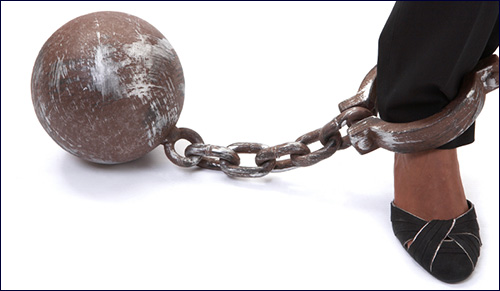 Iran’s Attack on Israel
Iran’s Attack on Israel


3 min read
4 min read
11 min read
5 min read
Getting rid of the leaven inside our hearts.
“Born Free,” “Free to Be Me,” “Let Freedom Ring” – I like to post signs all over the house indicating which rooms are clean for Passover with a saying that expresses freedom. My kids think I should “get over it” but freedom is in the air at Passover time. It’s the message of the time and it’s hard to ignore (especially when I keep shoving it down everyone’s throats!). But what exactly does it mean?
There are different kinds of freedom – physical freedom, psychological freedom and spiritual freedom, to name a few broad categories. Passover celebrates spiritual freedom. Although the Jewish people experienced a physical exodus from Egypt, although they are not longer imprisoned and enslaved by their cruel Egyptian taskmasters, this is not the essence of the holiday. Passover is not a celebration of the liberation from oppression – not for the Jewish people and certainly not for blacks, women or animals.
It was an aspect of the Almighty’s kindness to the Jewish people that He redeemed us from the land of Egypt. It was a demonstration of His power, His rule, His overarching authority and His love for us – but it wasn’t an absolute prerequisite to spiritual freedom (although it did make it easier). The Jewish women who continued to have children in the face of Pharaoh’s cruel decrees were spiritually free, choosing life and hope despite their circumstances. I would venture a guess that the late Nelson Mandela was spiritually free although imprisoned for many years. And certainly the former refusenik, now Israeli politician and statesman, Natan Sharansky, who studied Hebrew in the bowels of the KGB prison and wouldn’t leave without his Psalms, was spiritually free within his jail cell walls. It’s even possible that for some (although we certainly wouldn’t wish it!) physical imprisonment or enslavement is a catalyst for a spiritual awakening.
It’s possible to be spiritually free while physically trapped. What is more difficult, however, is to be spiritually free while psychologically trapped. More than our physical circumstances, our psychological ones can hold us back and enslave us. They can hinder our growth and create obstacles to our connection to the Almighty. This is where the real growth on Passover takes place. This is the freedom we are striving for on this holiday.
The classic interpretation of the search for chametz (leaven) and the elimination of it from our homes is that it represents ego. Ego can certainly enslave us. If it’s all about me, then there’s no room for you – or God. It’s impossible to have any relationships – friends, children, spouses, employees – if we see everyone as a tool to satisfy our needs, if we measure all interactions and activities in terms of how they affect us, if we are always looking for accolades and honor and approval. The ego is a psychological trap and Passover is an opportunity to work on freeing ourselves.
We can also be trapped by our desires, by our expectations, by our childhood experiences. The list is endless. When our desires control us (I need that chocolate cake), we are enslaved. When our expectations cloud our ability to enjoy the moment or experience the moment on its own terms, we are enslaved. When we blame all our negative behaviors on our parents and refuse to acknowledge our own responsibility to change, we are enslaved. (I know a 77 year-old man who still blames his mother for his anger issues.) Passover is a unique opportunity to free ourselves from these chains.
But Passover isn’t magic. We have to put in the effort. It’s not enough to clean our homes; we have to really think about rooting out the chametz within ourselves as we clean – it’s too easy to focus on the external cleanliness (can someone pass me the Clorox please?) and forget about the more important internal cleanliness.
It’s not enough to eat the matzah; we have to internalize the experience of humility. We invite others in as an expression of caring, of selflessness and of recognition that it’s all a gift.
It’s not enough to read the Hagaddah and tell the story of the Exodus, we have to put ourselves in our ancestors’ place. We have to imagine the slavery (our neuroses) and rejoice in the freedom. Passover is the great experiential holiday with a gripping and moving story line whose point is to wake us up to the spiritual reality.
Moses pleaded with Pharaoh. “God says,” he told him, “to let My people go that they may serve Me.” Moses desperately wanted to get the Jewish people out of Egypt because he knew their spiritual freedom was still incomplete. Although they could connect with God despite their physical slavery, their psychological entrapment was holding them back. They had a slave mentality. They were subservient to the Egyptians. They had to break out of that slavery and recognize that the Jewish people are only slaves to the Almighty. Moses wanted Pharaoh to let the Jewish people go physically. But he wanted him to relax his psychological hold as well. Only then could the Jewish people truly be free.
It’s a long, hard job. Year after year, the dust gathers and we scrub and scrub. Maybe this year we will be successful. Maybe this year we can sincerely wish for “Next Year in Jerusalem.”
